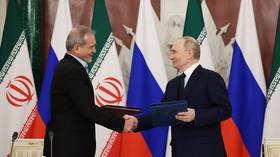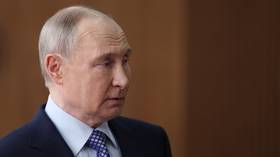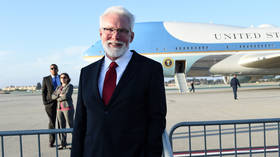Benedict Cumberbatch needs to man up about toxic masculinity

‘Sherlock’ star Benedict Cumberbatch has shrewdly deduced that ‘men are bad’ and has shared that revelation with the world. Elementary wokeism, my dear Watson.
I must confess that I find sanctimonious celebrity sermons particularly nauseating. So, when I hear acclaimed actor Benedict Cumberbatch stating that society needs to address ‘toxic masculinity’ I reach for my metaphorical sick bucket.
Cumberbatch smugly pontificated that ‘we need to fix the behaviour of men.’ In his sermon from Hollywood Hills, the Dr Strange star exhorted men to stop denying how horrible they are. He decried those who said that ‘not all men are bad’ and ‘blah blah blah, but no, we just have to shut up and listen.’
Cumberbatch’s denunciation of masculinity was part of his public relations campaign for his new film, ‘Power of the Dog’. That the film is devoted to the pathologization of masculine identity is not surprising since, in recent years, toxic masculinity has emerged as the target of choice of woke moral entrepreneurs.
The term ‘toxic masculinity’ has become a catch-all phase to describe male feelings of entitlement, anger and vulnerability, and the urge to dominate and intimidate, through either overt or covert means. In his book ‘Angry White Men’, the American sociologist Michael Kimmel associated masculinity – particularly the type exhibited by white men – as a marker for racist and far-right behaviour. From this perspective the election of Donald Trump was fuelled by toxic masculinity.
The term came into its own in 2017, when accusations of sexual harassment and rape were made public against Harvey Weinstein. Among woke denizens of Hollywoodland like Cumberbatch, the adjective ‘toxic’ has actually become redundant, since masculinity itself is now increasingly framed as innately toxic, like a form of societal cyanide.
Toxic masculinity is an insidious, politically motivated term designed to delegitimise masculine identity by associating manliness with destructive characteristics such as racism, homophobia, misogyny and violent aggression. That the target is that of masculine behaviour rather than a particular pathological variant is shown by the project of eradicating the use of the term ‘man up’ from public life.
Time and again the identitarian language police insists that this term be abolished from the English language. One commentator declared, “I never use the phrase ‘man up’ since I realized that I was perpetuating misogyny with those two simple words”!
The linguistic hostility toward ‘manning up’ is not surprising since calling upon a man to step up to his responsibilities endows masculinity with positive qualities. That is precisely the nub of the problem for the Cumberbatches of this world. The crusade against toxic masculinity is not simply against men but also against male ideals. Their target is manliness itself in any of its manifestations.
Outwardly, the opponents of toxic masculinity decry male violence, entitlement and sexual aggression. But their crusade is also intensely hostile to virtues such as courage, risk-taking, self-control and stoicism. These once-celebrated values are treated as pathologies. The personification of this Oprah-fication of masculinity is of course Prince Harry, who, when not holding back his tears, holds forth about the importance of acknowledging emotions. Because of his ‘openness about his own mental and emotional struggles,’ his behaviour promoted as the antithesis of masculinity.
The crusade against masculinity has a corrosive impact on society. It seeks to undermine many of the important human attributes that have led to the development of civilization. Courage, autonomy and risk-taking have been central to the development of the human spirit. Contrary to the sermons hurled against masculinity, the ethos of stoicism serves well those who face difficult challenges. Humanist values will suffer a severe setback if this crusade against so-called male values triumphs.
The traditional virtues associated with manliness retain their relevance in the 21st century. Especially today, when society is confronted with a major public health and economic crisis, we all – men and women – need to man up.
The statements, views and opinions expressed in this column are solely those of the author and do not necessarily represent those of RT.


















